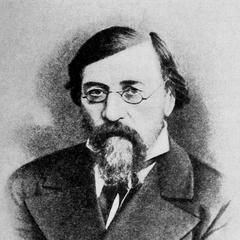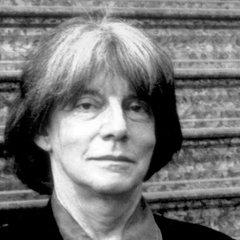Ian Hacking Quotes

Ian Hacking (1983). “Representing and Intervening: Introductory Topics in the Philosophy of Natural Science”, p.152, Cambridge University Press
The best reaction to a paradox is to invent a genuinely new and deep idea.
Ian Hacking (2001). “An Introduction to Probability and Inductive Logic Desk Examination Edition”, p.94, Cambridge University Press
Ian Hacking (2006). “The Emergence of Probability: A Philosophical Study of Early Ideas about Probability, Induction and Statistical Inference”, p.34, Cambridge University Press
Plutonium has a quite extraordinary relationship with people. They made it, and it kills them.
Ian Hacking (1999). “The Social Construction of What?”, p.105, Harvard University Press
Probability fractions arise from our knowledge and from our ignorance.
Ian Hacking (2006). “The Emergence of Probability: A Philosophical Study of Early Ideas about Probability, Induction and Statistical Inference”, p.132, Cambridge University Press
Ian Hacking (2006). “The Emergence of Probability: A Philosophical Study of Early Ideas about Probability, Induction and Statistical Inference”, p.33, Cambridge University Press
The final arbitrator in philosophy is not how we think but what we do.
Ian Hacking (1983). “Representing and Intervening: Introductory Topics in the Philosophy of Natural Science”, p.31, Cambridge University Press
Statistics began as the systematic study of quantitative facts about the state.
Ian Hacking (2006). “The Emergence of Probability: A Philosophical Study of Early Ideas about Probability, Induction and Statistical Inference”, p.126, Cambridge University Press
Ian Hacking (2001). “An Introduction to Probability and Inductive Logic Desk Examination Edition”, p.38, Cambridge University Press
Molecular biology has routinely taken problematic things under its wing without altering core ideas.
Ian Hacking (2006). “The Emergence of Probability: A Philosophical Study of Early Ideas about Probability, Induction and Statistical Inference”, p.63, Cambridge University Press
Opinion is the companion of probability within the medieval epistemology.
Ian Hacking (2006). “The Emergence of Probability: A Philosophical Study of Early Ideas about Probability, Induction and Statistical Inference”, p.55, Cambridge University Press
Ian Hacking (1990). “The Taming of Chance”, p.148, Cambridge University Press
Ian Hacking (2006). “The Emergence of Probability: A Philosophical Study of Early Ideas about Probability, Induction and Statistical Inference”, p.58, Cambridge University Press
Ian Hacking (1983). “Representing and Intervening: Introductory Topics in the Philosophy of Natural Science”, p.135, Cambridge University Press
Ian Hacking (2006). “The Emergence of Probability: A Philosophical Study of Early Ideas about Probability, Induction and Statistical Inference”, p.58, Cambridge University Press
Ian Hacking (2006). “The Emergence of Probability: A Philosophical Study of Early Ideas about Probability, Induction and Statistical Inference”, p.139, Cambridge University Press
In each case you settle on an act. Doing nothing at all counts as an act.
Ian Hacking (2001). “An Introduction to Probability and Inductive Logic Desk Examination Edition”, p.79, Cambridge University Press
Ian Hacking (1984). “The Emergence of Probability: A Philosophical Study of Early Ideas about Probability, Induction and Statistical Inference”, p.142, Cambridge University Press
By legend and perhaps by nature philosophers are more accustomed to the armchair than the workbench.
Ian Hacking (1983). “Representing and Intervening: Introductory Topics in the Philosophy of Natural Science”, p.136, Cambridge University Press






